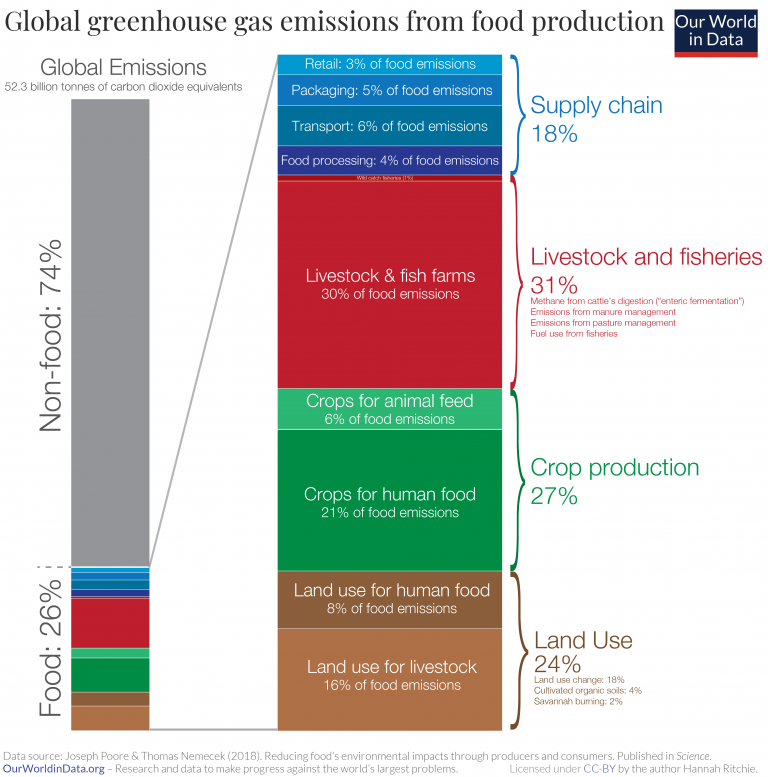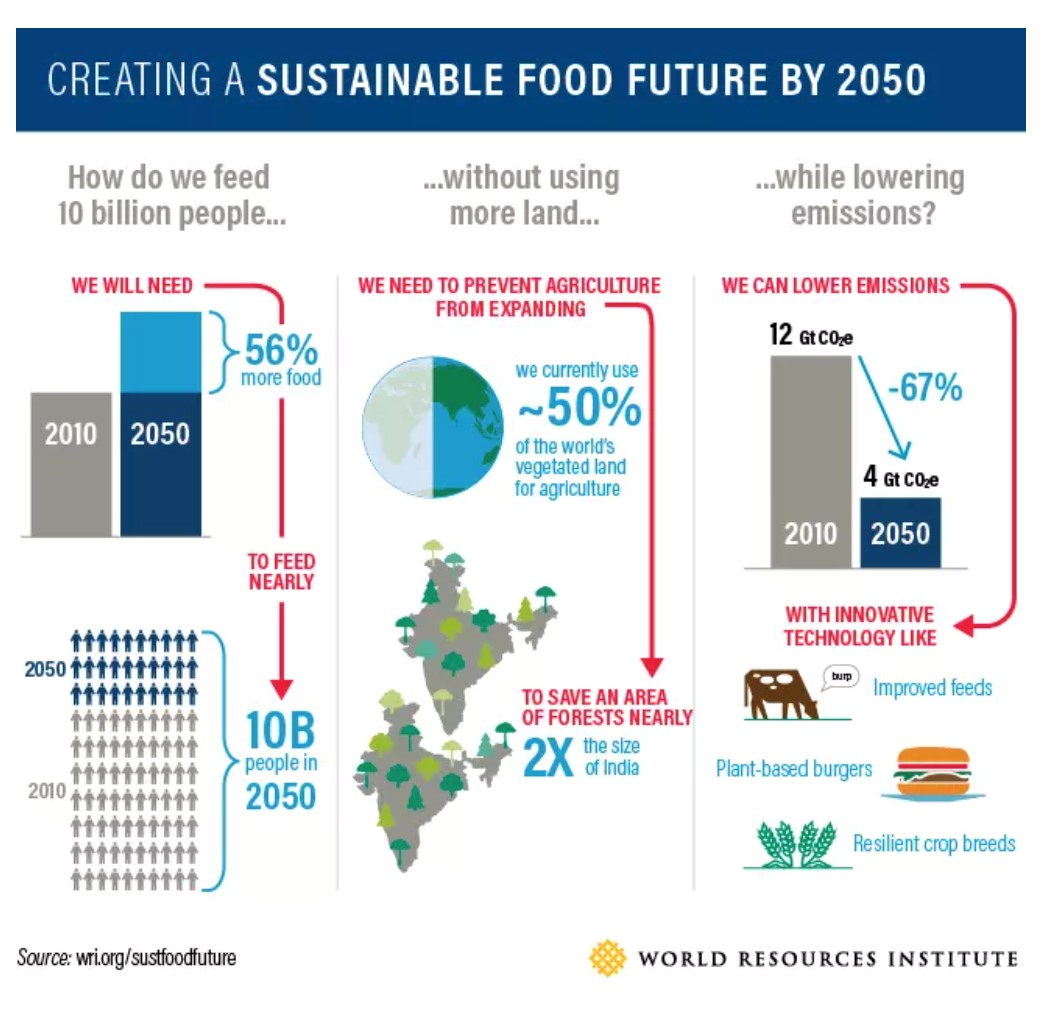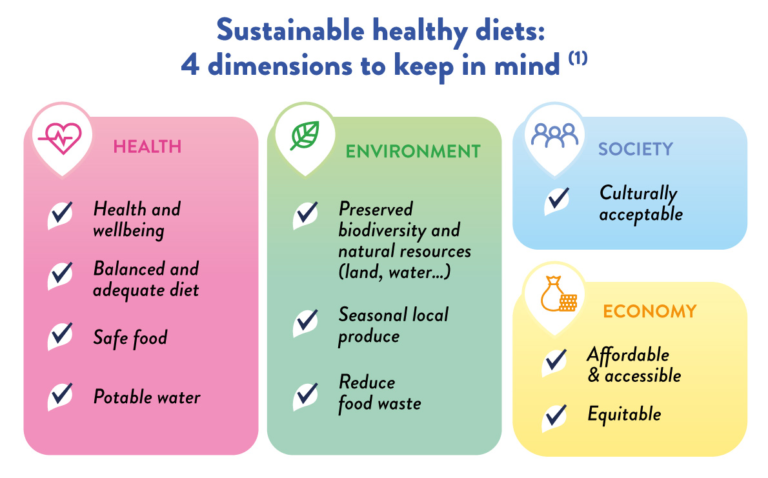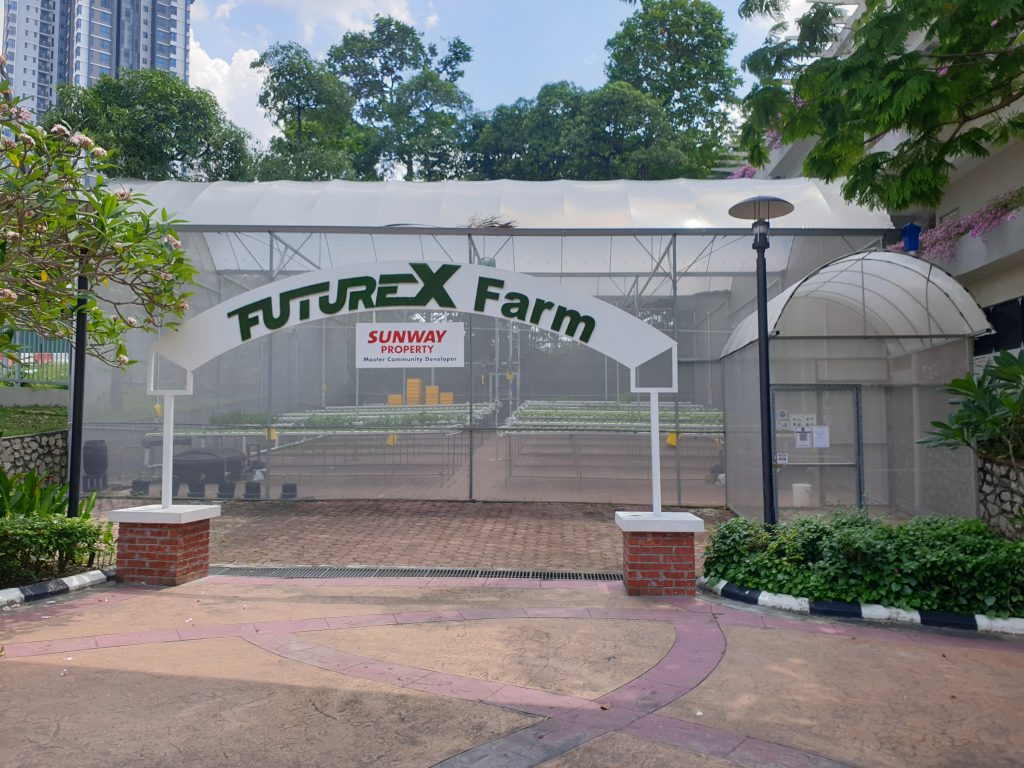Sustainable Healthy Diet: Is it Achievable?

Written by Koo Tse Chien
Do you eat to live or live to eat? Food is no longer just for survival but to also spread joy and brings people together. However, with our current food consumption patterns – overeating while creating more food waste and combining with unprecedented land degradation for agriculture and climate change, we will not be able to feed everyone by 2050. On the other hand, there are 700 million people who are undernourished. Unhealthy diets have fast becoming one of the leading cause of death, killing more people globally than drug, alcohol and tobacco use combined.
From the environmental aspect, our current food systems contribute up to 26% of global greenhouse gas emissions and one-third of the lands is degraded due to intensive and unsustainable farming practices, causing loss of productive land. It is predicted that crop yield will decrease as much as 50% in certain regions. Moreover, degraded land also means soil depletion which produces low nutritional value crops.

According to a research by WWF, there is growing body of evidence suggesting that a global shift toward healthier and more sustainable diets will mitigate climate change and food insecurity, improve human health, create more resilient supply chain, decrease the risks of future pandemics, and could unleash a potential of USD 4.5 trillion in new business opportunities each year.

What is a sustainable healthy diet?
Sustainable diets are those that contribute to nutritional and food safety while minimizing environmental impact and at the same time maintaining the ecosystems and biodiversity as well as being accessible and economically fair. In simple terms, a diet that is healthy and safe for both people and the planet.

What we can do as an individual:
- Eat a plant-based diet
Currently, livestock takes up nearly 80% of global agricultural land, causing mass tropical forest clearing and enormous amount of water consumption but yet producing only <20% of the world’s supply calories. It is also one of the main contributor of greenhouse gasses emissions. Eating a plant-based diet does not mean to go meatless or vegan completely but to replace some of the protein from meat especially red and processed meats with more alternative proteins such as whole grains, nuts and seeds, and fruits and vegetables.
- Diversify your diet
Did you know that despite there are about 30,000 edible plant species, >40% of our daily calories come from only three staple crops: rice wheat and maize. Biodiversity is crucial for our environment and reduces the impacts of climate change. Therefore, by having more varieties on our plate also means it demands for a variety in agriculture.
- Reduce and repurpose your food waste
One-third of food is wasted globally which is equivalent to an agricultural land area larger than both Canada and India together. Moreover, the disposal of food waste in landfills leads to increased greenhouse gasses emissions, further exacerbating our environment. We can play our part on reducing food waste by meal planning, not throwing away the ugly but edible vegetables, freezing leftovers and composting food scraps as organic fertilizers for soil.
- Support seasonal local produce
By supporting local food produce, you are not only buying the freshest and most nutritious food due to less food miles but also a key to support sustainable agriculture and local economy.
Role of a Food Producer: How Sunway FutureX Farm is creating a sustainable food system

To create a sustainable food system to feed the urban population and address food security at large-scale in Malaysia, we have launched the Sunway FutureX Farm – Malaysia’s first-of-its-kind urban farm innovation hub that brings together urban farming professionals, young talents, startups and industry partners to create transformative solutions for food and agritech. Below are some of the sustainable food initiatives that are being practiced at the farm:
- 100% Safe & Clean Food
All vegetables are grown hydroponically and this eliminates the risk of soil contamination. In addition, we grow our vegetables in a controlled environment without any pesticides. We control pests by imposing strict farm SOPs through limiting visitors from entering the farm and only applying certified natural/organic pest repellants.
- Healthy & Nutritious
All vegetables are timed to be harvested at the peak of its maturity early in the morning and delivered to our consumers by noon in the same day. This is to ensure minimal nutrients loss from farm to fork.
- Smart technology-driven
All our farms are being optimized by smart technologies using IoT sensors, artificial intelligence and data analytics to produce high quality vegetables and minimize farm wastage through more accurate and precise forecasting based on various internal and external factors such as weather patterns.
- Zero-waste policy:
We recycle all of our farm waste and vegetable scraps to feed the fishes in our aquaponics farms and make compost that will then be used for our surrounding landscape at Sunway FutureX and R&D of new plant varieties.
- Say NO to plastic:
We do not use any plastic for our packaging. We use biodegradable paper bags for our weekly harvest and work with a local partner, Circlepac that produces sustainable compostable bamboo container for our microgreens
- Reduced food mile
We only supply vegetables to community who lives up to 25km radius from our farm at the moment and aim to reduce it to 10-15km within 5 years by building more decentralized farms across the cities. This will ensure less greenhouse gasses emissions for transportation and ensuring highly nutritious vegetables delivered to our consumers.
- Gentle to the Planet
Both hydroponics and aquaponics farming methods use 90% less water and produce 30-40% more yield per square feet as compared to traditional farming. Hence, we saves water and land resources to feed more people in a sustainable way.
Taking one small step at a time
To create a sustainable food system, it requires concerted effort from multi-stakeholders. As an individual, we have the power to influence producers and policymakers alike to take bold actions. Let’s do our part by being more aware of our daily food choices by making small swaps each day.
Together, we can make a difference!
To learn more about the initiatives by Sunway FutureX Farm, kindly visit sunwayXfarms.com or follow us on our Facebook page / Instagram @sunwayfutureXfarm.



